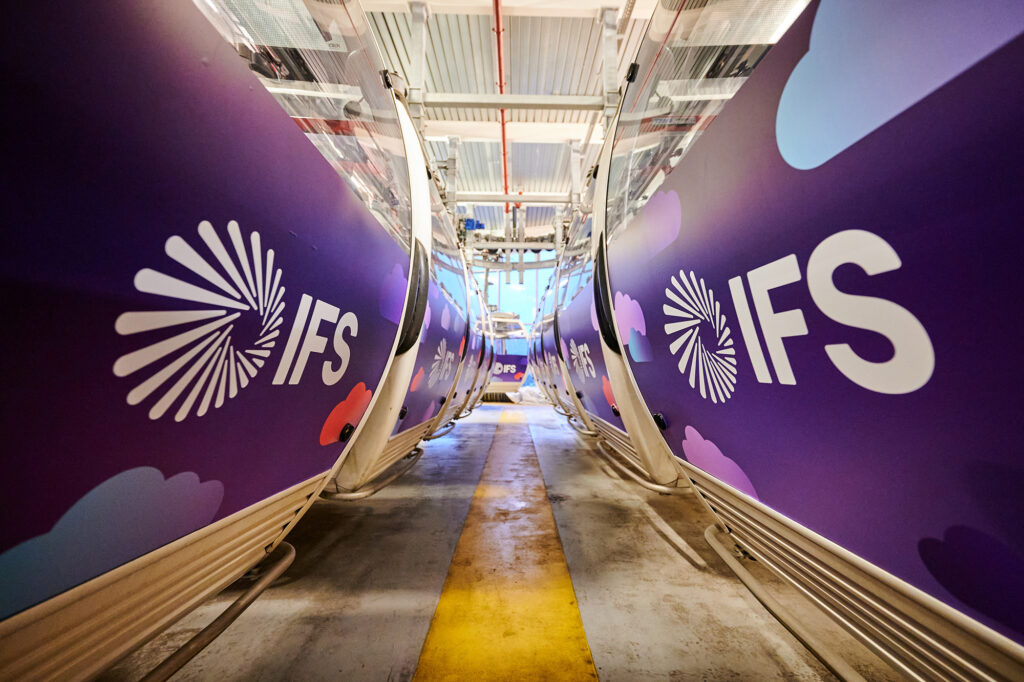Cloud enterprise software and Industrial AI applications provider IFS announced its valuation has exceeded €15 billion. This significant milestone follows a strategic shift towards AI-driven growth and consistently strong financial performance.
Investing in IFS
The announcement also coincides with major investment developments. Hg, a long-term software investor, has increased its stake in the Cloud ERP provider to become a co-control shareholder alongside EQT.
Nic Humphries, Senior Partner at Hg, noted, “With 20 years’ experience investing in software, we recognize exceptional businesses when we see them. Our increased investment in IFS reflects our conviction in their long-term vision and strong execution, which enables their customers’ digital transformation.”
Existing minority shareholder TA Associates remains invested in IFS, joined by new minority investors including a subsidiary of the Abu Dhabi Investment Authority (ADIA) and the Canada Pension Plan Investment Board (CPP Investments). These investors acquired shares from EQT funds, TA, and other minority holders.
Commenting on the investment, Johannes Reichel, Partner at EQT, said, “It has been remarkable to see the company’s growth. It’s a prime example of EQT’s ability to run with the winners. We are excited to work alongside Hg to continue supporting IFS through this next phase.”
Industrial AI Demand Drives Growth
IFS’s impressive growth trajectory underpins this valuation. The company surpassed €1 billion in annual recurring revenue (ARR) last year, achieving over 30% year-on-year growth. Total revenue for 2024 exceeded €1.2 billion.
Demand for IFS’s Industrial AI capabilities has surged, particularly in key sectors like Aerospace & Defense, Energy & Utilities, and Manufacturing. Recent major customer wins include Exelon, Rolls-Royce Power Systems, and Total Energies, with the average deal size for its largest customers increasing by 64% annually.
Mark Moffat, CEO of IFS, stated, “IFS’s success and sustained growth is centered around a commitment and track record of rapidly delivering business value to our customers. The investment and continued commitment from Hg, EQT and TA will help IFS further accelerate our journey to be the undisputed category leader of Industrial Software.”
This strategic investment round positions IFS to further capitalize on the demand for industrial AI and solidify its leadership in the enterprise software market.
What This Means for ERP Insiders
AI integration is driving significant value and demand in traditional industries. The strong performance and high valuation of IFS, explicitly linked to its “pivot to AI-driven growth,” signals a major trend—traditional industries like manufacturing, aerospace, and energy are embracing AI. Thus, demand for integrated Industrial AI capabilities within enterprise software has increased significantly. This isn’t just future-casting; companies are actively seeking and realizing rapid and transformative value from AI embedded in their core systems now.
Utilizing AI is being increasingly customized for specific industry needs. The demand for IFS’s Industrial AI is driven by its tangible results in specific industrial applications. IFS has successfully integrated AI for its key sectors in automating workflows, improving efficiency, and enhancing service delivery. Examples like Exelon using it for asset maintenance, Rolls-Royce for service transformation, and Total Energies for global asset management show that ERP users in asset-intensive and service-oriented industries (Manufacturing, Energy, A&D, Service, etc.) are leveraging Industrial AI for concrete operational improvements.
Agentic AI is the next wave in AI evolution. IFS is expanding its industrial application of generative and agentic AI. This indicates that the next wave of value within ERP involves moving beyond basic analytics towards more sophisticated AI that can automate complex processes and enhance decision-making proactively. Organizations should evaluate how these advanced AI forms can be applied within their own operations for competitive advantage, particularly for automating workflows and improving service.




